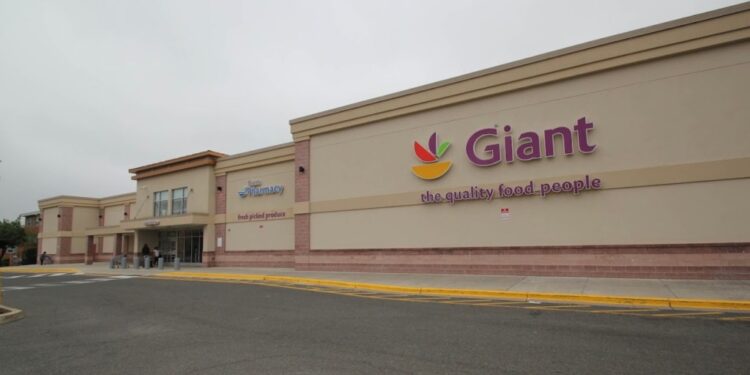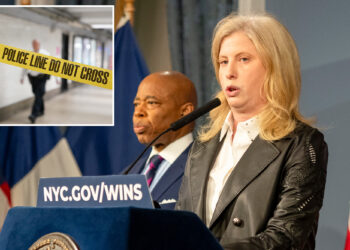A supermarket in Washington, DC will reportedly pull all national brands from the shelves of its beauty and health aisles in a last-ditch effort to deter rampant shoplifting and keep the store open.
The Giant Food grocery store on Alabama Avenue has struggled to remain profitable amid the climate of shoplifting that has struck big chain stores throughout the nation.
As a response, the store will only leave generic store brands on the shelves — meaning that people searching for oft-stolen brands like Tide, Colgate or Advil will be out of luck, according to the Washington Post.
“We have no other choice,” Diane Hicks, senior vice president of operations, said last week, adding that nearby stores have already locked or removed similar products from their aisles. “I’ve been leaving it out for our customers and unfortunately it just forces all the crime to come to us.”
The store will also check customers’ receipts before they leave.
The grocer chain – which includes 165 supermarkets throughout DC, Maryland, Virginia and Delaware – had already put in place several new security measures, including more guards, fewer open entrances and more locked up products, the Washington Post said.
But things haven’t gotten better, according to Giant president Ira Kress.

“At this particular store, it’s actually worse,” Kress said of shoplifting. “And we’ve invested a significant amount of money here, even more security here than any other store.”
The brand name products are easy to steal and have high resale values, Kress added. Instead, customers will be able to buy the company’s brand, CareOne, which doesn’t command the same high resale prices, the Washington Post said.
The move is a final attempt to avoid closing the unprofitable store, which serves a city ward of more than 85,000 people, the paper said.
And it comes as retailers throughout the United States grapple with a wave of shoplifting and organized crime that’s put a dent into the profits of behemoths like Home Depot, Target, Walmart and Lowes.


“Our team continues to face an unacceptable amount of retail theft and organized retail crime,” Brian Cornell, Target’s chief exec, told investors last month.
“During the first five months of this year, our stores saw a 120 percent increase in theft incidents involving violence or threats of violence.”
The statements reflect a national trend as organized retail crime jumped in 2021 by more than 25 percent, according to a National Retail Federation study released last year.

That accounts for roughly half of the $94.5 billion lost that year to “shrinkage,” or product loss from something other than sales.
Many stores — such as Dollar Tree and Walgreens — have tried to fight the theft by locking up products and discontinuing others, the Washington Post said.
The paper added that because big grocers operate on slim profit margins, they can be sensitive to even minor changes in costs.
As a result, some have already closed stores in cities – such as a Whole Foods store that abandoned downtown San Franciso over concerns about rising crime.
“We are closing our Trinity location only for the time being,” a Whole Foods spokesperson told the San Francisco Standard back in April. “If we feel we can ensure the safety of our team members in the store, we will evaluate a reopening of our Trinity location.”

























